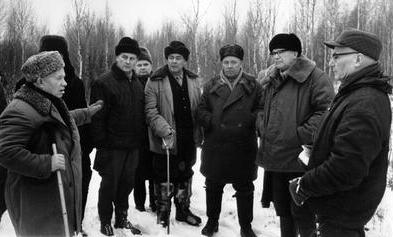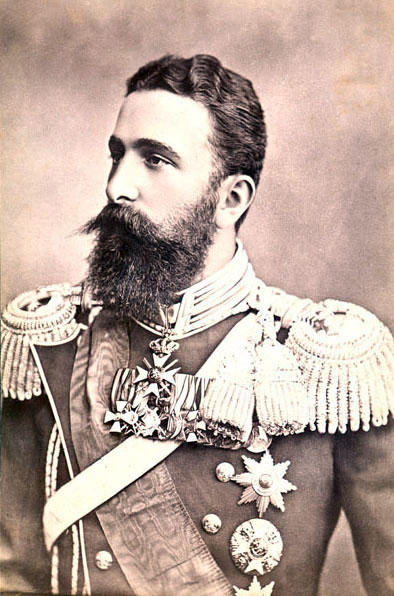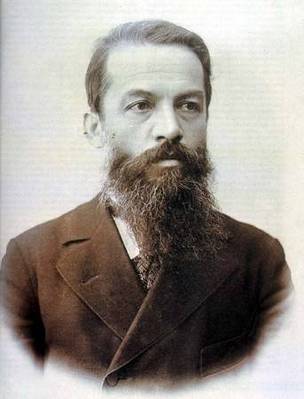|
Order Of José Martí
The Order of José Martí () is a state honor in Cuba. The Order was named so after José Martí, the national hero of Cuba. The design was realized by the Cuban sculptor José Delarra. Notable recipients * Mahathir Mohamad, Prime Minister of Malaysia * Alexander Lukashenko, President of Belarus * Mohammad Najibullah, Former General Secretary Of the People's Democratic Party of Afghanistan * Armando Hart * Antonio Gades * António Mascarenhas Monteiro, former President of Cape Verde * Michael Manley, former Prime Minister of Jamaica * Leonid Brezhnev, former General Secretary of the Communist Party of the Soviet Union * Houari Boumédiène, President of Algeria * Ali Abdullah Saleh, former President of Yemen * Kim Il Sung, former President of the Democratic People's Republic of Korea and former General Secretary of the Workers' Party of Korea * Thomas Sankara, President of Burkina Faso * Todor Zhivkov former General Secretary of the Bulgarian Communist Party and ... [...More Info...] [...Related Items...] OR: [Wikipedia] [Google] [Baidu] |
Cuba
Cuba, officially the Republic of Cuba, is an island country, comprising the island of Cuba (largest island), Isla de la Juventud, and List of islands of Cuba, 4,195 islands, islets and cays surrounding the main island. It is located where the northern Caribbean Sea, Gulf of Mexico, and Atlantic Ocean meet. Cuba is located east of the Yucatán Peninsula (Mexico), south of both Florida and the Bahamas, west of Hispaniola (Haiti/Dominican Republic), and north of Jamaica and the Cayman Islands. Havana is the largest city and capital. Cuba is the List of countries and dependencies by population, third-most populous country in the Caribbean after Haiti and the Dominican Republic, with about 10 million inhabitants. It is the largest country in the Caribbean by area. The territory that is now Cuba was inhabited as early as the 4th millennium BC, with the Guanahatabey and Taino, Taíno peoples inhabiting the area at the time of Spanish colonization of the Americas, Spanish colonization ... [...More Info...] [...Related Items...] OR: [Wikipedia] [Google] [Baidu] |
Leonid Brezhnev
Leonid Ilyich Brezhnev (19 December 190610 November 1982) was a Soviet politician who served as the General Secretary of the Communist Party of the Soviet Union from 1964 until Death and state funeral of Leonid Brezhnev, his death in 1982 as well as the fourth List of heads of state of the Soviet Union, chairman of the Presidium of the Supreme Soviet (head of state) from 1960 to 1964 and again from 1977 to 1982. His 18-year term as General Secretary was second only to Joseph Stalin's in duration. Brezhnev was born to a working-class family in Kamianske, Kamenskoye (now Kamianske, Ukraine) within the Yekaterinoslav Governorate of the Russian Empire. After the results of the October Revolution were finalized with the creation of the Soviet Union, Brezhnev joined the Communist party's youth league in 1923 before becoming an official party member in 1929. When Operation Barbarossa, Nazi Germany invaded the Soviet Union in June 1941, he joined the Red Army as a Political commissar, ... [...More Info...] [...Related Items...] OR: [Wikipedia] [Google] [Baidu] |
List Of Heads Of The State Of Bulgaria
This is a list of the heads of the modern Bulgarian state, from the establishment of the Principality of Bulgaria to the present day. It also lists the general secretaries of the Bulgarian Communist Party in 1948–1990. From 1948 onwards, the general secretary was the country's ''de facto'' chief executive. Principality of Bulgaria (1878–1908) Tsardom of Bulgaria (1908–1946) People's Republic of Bulgaria (1946–1990) ;Status General Secretaries of the Bulgarian Communist Party (1948–1990) Republic of Bulgaria (1990–present) Timeline Head of state titles See also * Politics of Bulgaria * List of Bulgarian monarchs * List of Bulgarian regents * List of heads of government of Bulgaria * List of presidents of Bulgaria (1990–present) * List of first deputy chairmen of the State Council of Bulgaria * Vice President of Bulgaria Footnotes and references External links List of Bulgarian heads of state and governmentThe President of the Republic o ... [...More Info...] [...Related Items...] OR: [Wikipedia] [Google] [Baidu] |
Bulgarian Communist Party
The Bulgarian Communist Party ( Bulgarian: Българска комунистическа партия (БΚП), Romanised: ''Bŭlgarska komunisticheska partiya''; BKP) was the founding and ruling party of the People's Republic of Bulgaria from 1946 until 1990, when the country ceased to be a socialist satellite state of the Soviet Union. The party had dominated the Fatherland Front, a coalition that took power in 1944, late in World War II, after it led a coup against Bulgaria's tsarist regime in conjunction with the Red Army's crossing of the border. It controlled its armed forces, the Bulgarian People's Army. The BCP was organized on the basis of democratic centralism, a principle introduced by the Russian Marxist scholar and leader Vladimir Lenin, which entails democratic and open discussion on policy on the condition of unity in upholding the agreed-upon policies. The highest body of the BCP was the Party Congress, convened every fifth year. When the Party Congress wa ... [...More Info...] [...Related Items...] OR: [Wikipedia] [Google] [Baidu] |
Todor Zhivkov
Todor Hristov Zhivkov ( ; 7 September 1911 – 5 August 1998) was a Bulgarians, Bulgarian communist statesman who served as the ''de facto'' leader of the People's Republic of Bulgaria (PRB) from 1954 until 1989 as General Secretary of the Central Committee of the Bulgarian Communist Party. He was the second longest-serving leader in the Eastern Bloc, the longest-serving leader within the Warsaw Pact and the longest-serving non-royal ruler in Bulgarian history. During World War II, Zhivkov participated in Bulgarian resistance movement during World War II, Bulgaria's resistance movement in the People's Liberation Insurgent Army. In 1943, he was involved in organising the Chavdar Partisan Brigade in and around his place of birth, becoming deputy commander of the :bg:Първа Софийска въстаническа оперативна зона, Sofia operations area in the summer of 1944. Under his rule, many fellow former combatants with Chavdar were to rise to positions of ... [...More Info...] [...Related Items...] OR: [Wikipedia] [Google] [Baidu] |
President Of Burkina Faso
The president of Burkina Faso () is the head of state of Burkina Faso and as well as the commander-in-chief of the Armed Forces of Burkina Faso. It is the highest office in Burkina Faso and has significant executive power, including appointing the prime minister and other government officials. They also have the power to dissolve parliament and issue decrees. The office was first established in August 1960 as president of Upper Volta () after the country gained independence from France. Maurice Yaméogo was the first holder of that office. On 4 August 1984, the day before the 24th anniversary of independence, Thomas Sankara, who was the president from exactly one year earlier, became the president of Burkina Faso after the country changed its name the same day. The president is elected directly to a five-year term. Following ammendments in the constitution in 2000, the president should serve no more than two terms even though the term limit has not been met by any preside ... [...More Info...] [...Related Items...] OR: [Wikipedia] [Google] [Baidu] |
Thomas Sankara
Thomas Isidore Noël Sankara (; 21 December 1949 – 15 October 1987) was a Burkinabè military officer, Marxist and Pan-Africanist revolutionary who served as the President of Burkina Faso from 1983, following his takeover in a coup, until his assassination in 1987. After being appointed Prime Minister in 1983, disputes with the sitting government resulted in Sankara's eventual imprisonment. While he was under house arrest, a group of revolutionaries seized power on his behalf in a popularly supported coup later that year. At the age of 33, Sankara became the President of the Republic of Upper Volta and launched an unprecedented series of social, ecological, and economic reforms. In 1984, Sankara oversaw the renaming of the country as Burkina Faso ('land of the upright people'), and personally wrote its national anthem. His foreign policy was centered on anti-imperialism and he rejected loans and capital from organizations such as the International Monetary Fund. However, ... [...More Info...] [...Related Items...] OR: [Wikipedia] [Google] [Baidu] |
General Secretary Of The Workers' Party Of Korea
The general secretary of the Workers' Party of Korea () is the party leader, leader of the Workers' Party of Korea (WPK), the ruling party in North Korea, and the Supreme Leader (North Korean title), country's supreme leader. Charter of the Workers' Party of Korea, Party rules stipulate that the party congress elects the general secretary. The party conference and the Central Committee are empowered to remove and elect the party leader. The general secretary is ''ex officio'' Chairman of the Central Military Commission of the Workers' Party of Korea, WPK Central Military Commission and leads the work of the Secretariat of the Workers' Party of Korea, secretariat. Additionally, the general secretary is by right of office member of the Presidium of the Politburo of the Workers' Party of Korea, WPK Presidium, the Politburo of the Workers' Party of Korea, WPK Politburo and the WPK Secretariat. The office traces its lineage back to the reestablishment of the Communist Party of Korea ... [...More Info...] [...Related Items...] OR: [Wikipedia] [Google] [Baidu] |
President Of North Korea
The president of the Democratic People's Republic of Korea () was the head of state of North Korea from 1972 to 1998. The position was only occupied by Kim Il Sung from 1972 until Death and state funeral of Kim Il Sung, his death in 1994. Aside from being president, Kim was also the General Secretary of the Workers' Party of Korea, Chairman of the National Defence Commission (until 1993) and Supreme Commander of the Korean People's Army (until 1991). Following his death in 1994, the position remained vacant until 1998 and his son Kim Jong Il was not given the title to succeed him. A constitutional amendment in 1998 named Kim Il Sung as the Eternal President, eternal president and abolished the position. Election The Constitution of North Korea, 1972 Constitution stated that the president was elected by the Supreme People's Assembly for a term of four years.Socialist Constitution of the Democratic People's Republic of Korea (1972), Article 90 A constitutional amendment in 1992 i ... [...More Info...] [...Related Items...] OR: [Wikipedia] [Google] [Baidu] |
Kim Il Sung
Kim Il Sung (born Kim Song Ju; 15 April 1912 – 8 July 1994) was a North Korean politician and the founder of North Korea, which he led as its first Supreme Leader (North Korean title), supreme leader from North Korea#Founding, its establishment in 1948 until Death and state funeral of Kim Il Sung, his death in 1994. Afterwards, he was succeeded by his son Kim Jong Il and was declared Eternal leaders of North Korea, Eternal President. He held the posts of the Premier of North Korea, Premier from 1948 to 1972 and President of North Korea, President from 1972 to 1994. He was General Secretary of the Workers' Party of Korea, the leader of the Workers' Party of Korea (WPK) from 1949 to 1994 (titled as chairman from 1949 to 1966 and as general secretary after 1966). Coming to power after the end of Korea under Japanese rule, Japanese rule over Korea in 1945 following Japan's surrender in World War II, he authorized Operation Pokpung, the invasion of First Republic of Korea, South K ... [...More Info...] [...Related Items...] OR: [Wikipedia] [Google] [Baidu] |
President Of Yemen
The president of the Republic of Yemen () is the head of state of Yemen. Under the Constitution of Yemen, the president is also the Supreme Commander of the Armed Forces and head of the executive branch of the Yemeni government. As of 7 April 2022, the powers of the president are exercised by the Presidential Leadership Council, headed by a chairman. The chairman of the Presidential Leadership Council is vested with sweeping powers, including the ability to unilaterally command the military and appoint governors and other key officials. The first and longest-serving president of unified Yemen was Ali Abdullah Saleh and the second was Abdrabbuh Mansur Hadi, who took office on 27 February 2012. The legality of his claim to presidency is in question, as he was the only candidate in the 2012 election and the end of his mandate was originally set for 27 February 2014. His mandate was extended for another year. However, he remained in power after the expiration of his mandate, a ... [...More Info...] [...Related Items...] OR: [Wikipedia] [Google] [Baidu] |
Ali Abdullah Saleh
Ali Abdullah Saleh Affash (21 March 1947There is a dispute as to Saleh's date of birth, some saying that it was on 21 March 1942. See: However, by Saleh's own confession (an interview recorded in a YouTube video), he was born in 1947.4 December 2017) was a Yemeni military officer and politician who served as the first president of the Republic of Yemen from the Yemeni unification in 1990 until his resignation in 2012, following the Yemeni revolution. Previously, he had served as the fourth and last President of the Yemen Arab Republic (North Yemen), from July 1978 to 22 May 1990, after the assassination of President Ahmad al-Ghashmi. al-Ghashmi had earlier appointed Saleh as military governor in Taiz. Saleh developed deeper ties with Western powers, especially the United States, during the War on Terror. Islamic terrorism may have been used and encouraged by Ali Abdullah Saleh in order to win Western support and for disruptive politically motivated attacks. In 2011, in th ... [...More Info...] [...Related Items...] OR: [Wikipedia] [Google] [Baidu] |







